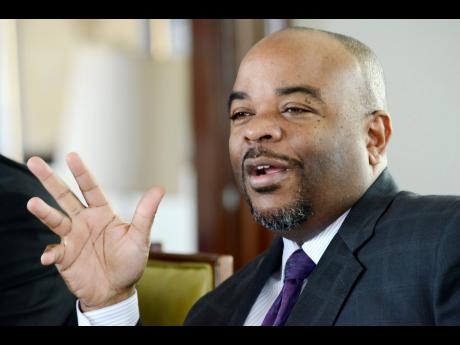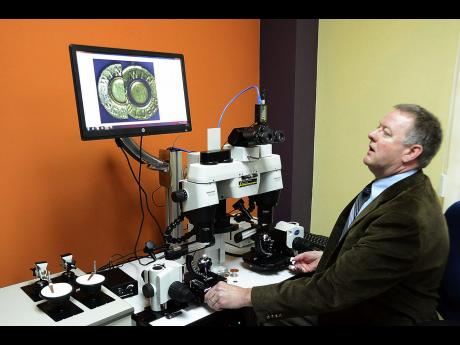The failings of INDECOM
A paradigm is said to be a person's individual mind map that takes him/her from information to conclusion. One should, therefore, easily understand that two people could get the exact same information and arrive at very different conclusions based on their mind's map (paradigm) that has been shaped by years of experiences and the tenets of socialisation.
Based on my own paradigm, I find even the concept of INDECOM unacceptable. Please note, I did not say I find the stated objective/s that led to the formation of INDECOM unacceptable, instead, I find the strategy of an independent oversight body for the police force unacceptable.
At this time, it is important for us to differentiate between objectives and strategy. The objective is the end result which is desired, and the strategy is the method that will be employed to achieve the stated end result.
This being understood, it should not be unacceptable that I agree 100 per cent with the objective of limiting - if not eradicating - the incidents of innocent civilians being killed by rogue members of the security forces. This, while simultaneously disagreeing with the strategy of setting up an independent oversight body, in our case, INDECOM.
I am against INDECOM's very existence because I find the premise upon which it would make sense unacceptable. The premise upon which an independent police oversight body would make sense is: the acceptance that the police force, in its totality, is too corrupt to investigate some crimes (in this case, crimes committed by one or some of its members).
For an independent oversight body to be necessary, we would have to accept that:
1) The police force in totality - and not just some police personnel - is so corrupt that the force in sum is incapable of investigating some crimes.
2) If one accepts that the police force, as a total unit, is too corrupt to investigate crimes committed by police officers, then it is important that, as a society, we further analyse what other segments of society the police force is also too corrupt to investigate. For example: family members of policemen, politicians, popular dons, the rich, Rastafarians, teachers, etc. Are we to assume that they are only too corrupt to investigate themselves, but sufficiently not corrupt to investigate all other sections of society?
If the police force, as a total unit, is too corrupt to investigate some crimes, then it is my view that INDECOM is not the answer. Instead, we need an overhaul of the police force to replace these rogues with some good men. Therefore, if we have a rogue force, we have prescribed the wrong medicine.
Now to the argument of whether or not INDECOM is failing. This, I believe, is a simple matter of logic. If we assume, as some do, that the force is extremely corrupt (an opinion which I do not share), and add this to the fact that INDECOM has only got roughly 10 prosecutions in five years, logic then suggests INDECOM is failing to bring a vast majority of rogue cops to justice.
INDECOM is doing well
It is mutually exclusive that (1) INDECOM is doing well with a handful of convictions after five years and (2) that the police force is overrun with rogue elements. If we accept assumption (1) above, INDECOM's success rate on a single conviction suggests the issue of rogue police is immaterial and the entity is a waste of funding. On the contrary, if we accept assumption (2) from above, INDECOM is failing to bring the rogue police to justice.
It is important that we look a little closer to Assumption Two, i.e., INDECOM is failing. I have never seen a failing man without an excuse, and INDECOM and its supporters are no different. They claim the justice system is slow; they claim the DPP is pro-police; they generally claim they are No. 5 and it was either No. 3, 4, 6 or 7 who stole the cookie from the cookie jar.
My problem with this, however, is all these realities existed when these same supporters and, indeed, the Parliament came to the conclusion that the Police Public Complaints Authority was a failure. These were the same realities the Police Public Complaints Authority faced when it was concluded that they were either unwilling or incapable to investigate their own and, therefore, INDECOM was needed. How is it now unfair to judge INDECOM on the same playing field that its predecessor was judged on?
INDECOM and its supporters continue to claim that the reduction in police killings is proof that INDECOM is working. Here, INDECOM seems to suggest that the fear of prosecution has caused the members of the police force not to act negatively. There exist clear flaws in this analysis: The reduction in police killings doesn't automatically suggest the reduction in extrajudicial killings. Indeed, not all police killings are unlawful acts, and so it is very possible that total police killings have gone down, but unlawful killing has not.
More important, it is also very possible that the overzealous execution of their 'duty' by INDECOM has caused the police not to engage criminals for fear of the financial and personal toll an 'automatic' INDECOM investigation has on a police officer. A police officer once told me that the police are more likely to go to jail than the criminal even when the police are not guilty.
This assumption of action/inaction impacted by fear is very much in line with INDECOM's argument that fear of prosecution impacts police action, thus their claim that the reduction in police killings is as a result of INDECOM. The sole dispute here is, has INDECOM caused the police force to act better, or, as I hypothesise, to act less frequently?
Since we are assuming the likely impact on the police personnel's actions, let's review some statements made by the police in their submission to Parliament. The submission claimed that INDECOM has exhibited "overzealous actions" from inception, which has resulted in a "strained relationship" between the police and its investigators.
The approach adopted by INDECOM over the years "has eroded the confidence of a critical mass of police officers, in their pursuit of hardened and violent criminals, and the conduct of criminal investigations in very serious cases, where INDECOM sidelines the police investigators by asserting its privileged position of primacy in the investigations."
"In some instances, the actions of INDECOM have impacted negatively on criminal investigations, thereby risking the possibility of criminals escaping prosecution and possible conviction."
Based on the above, I put it to you that it is more likely that police personnel who were acting lawfully in the pursuit of hardened violent criminals are now simply less motivated to act, rather than the gun-wielding cop killer of innocent citizens who has been scared straight, as INDECOM and its commissioner, Terrence Williams, would want you to believe.
In conclusion, therefore, I maintain my position that INDECOM has failed in its mandate, and more important, that the expenses of INDECOM should be a priority cut in the effort to reduce the public-sector wage bill.
- Damion Crawford is MP of East Rural St Andrew and junior minister of tourism and entertainment. Email feedback to columns@gleanerjm.com.



